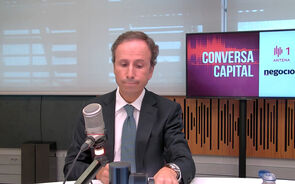Goldman Strategy: No Dip, Double Up
2 mensagens
|Página 1 de 1
IMF Raises 2010 Growth Estimate, Sees Greater Risks
The International Monetary Fund raised its forecast for global growth this year, reflecting a stronger-than-expected first half, while warning that financial- market turmoil has increased the risks to the recovery.
The world economy will expand 4.6 percent in 2010, the biggest gain since 2007, compared with an April projection of 4.2 percent, the Washington-based fund said in revisions yesterday to its World Economic Outlook. Growth next year is projected to be 4.3 percent, unchanged from the April forecast.
Canada and the U.S. are leading advanced economies out of the worst recession since World War II, trailed by euro-area countries that need additional measures to boost confidence in their banks, the fund said. Faster expansions in Brazil, China and India are helping to protect the global recovery as a sovereign-debt crisis weighs on Europe, the IMF said.
“The overarching policy challenge is to restore financial- market confidence without choking the recovery,” the IMF report said. “The new forecasts hinge on implementation of policies to rebuild confidence and stability, particularly in the euro area.”
The euro has fallen against the dollar in each of the past seven months on concern nation including Greece and Spain might default on their debt. The MSCI AC World Index of stocks has dropped for three straight months, and the Markit iTraxx SovX Western Europe Index of default swaps insuring against losses on debt of 15 governments last month reached an all-time high.
‘Cloud’ Over Outlook
“Recent turbulence in financial markets -- reflecting a drop in confidence about fiscal sustainability, policy responses, and future growth prospects -- has cast a cloud over the outlook,” the IMF report said.
Fiscal woes in advanced economies may curtail the flow of capital to emerging markets, Olivier Blanchard, the IMF’s chief economist, said at a press briefing today in Hong Kong. Blanchard said the reversal will prove “temporary” in the aftermath of the European crisis, with a resumption of flows over time.
European Union regulators are carrying out stress tests on 91 banks to examine whether they can withstand a shrinking economy and a drop in government bond values. Regulators are counting on the tests on firms including Madrid-based Banco Santander SA and Frankfurt-based Deutsche Bank AG to reassure investors that banks have enough capital to withstand a debt default by a European country.
While there’s “little evidence of negative spillovers” from the financial stress, some countries are facing “high levels of public debt, unemployment, and in some cases, constrained bank lending,” the report said.
Deficit Plans
The IMF urged governments to commit to implementing “credible” plans to lower their deficits over the medium term, including the adoption of binding, multiyear targets. Still, the developed economies don’t need to start fiscal tightening before 2011, it said.
The IMF predicted growth of 2.6 percent this year in advanced economies, more than the 2.3 percent seen in April. The fund cut its 2011 growth forecasts for every Group of Seven industrial nation except the U.S.
The U.S. economy will expand 3.3 percent this year, more than the 3.1 percent predicted in April, and 2.9 percent next year, the IMF said.
Japan’s gross domestic product will increase 2.4 percent in 2010, more than the 1.9 percent forecast in April, before slowing to 1.8 percent growth next year, the fund said.
For the euro area, the IMF kept its forecast for 2010 unchanged at 1 percent and reduced its 2011 outlook 0.2 percentage point to 1.3 percent.
Debt Reduction
Europe’s debt crisis, which policy makers sought to contain with an emergency 750 billion-euro ($949 billion) aid program, prompted Group of 20 leaders last month to commit to deficit-and debt-reduction goals over the next six years.
Advanced G-20 economies will try to halve deficits by 2013 and start to stabilize their debt-to-output ratios by 2016, leaders said at the end of their June meeting in Toronto. At the same time, they said nations can move at their own pace and pledged to fulfill existing stimulus plans.
Monetary policy in advanced economies can remain “highly accommodative for the foreseeable future,” because inflation is expected to remain “subdued,” helping mitigate the effects of fiscal consolidation on growth, the IMF said in the report.
If risks materialized in economies with central bank policy rates close to zero, officials may need to expand their balance sheets again to ease monetary conditions, it said.
Europe Challenge
In addition, the 16-country euro region needs “well- coordinated policies to rebuild confidence,” the IMF report said. The steps include making its rescue program operational, ending uncertainties about banks and ensuring financial institutions have adequate capital buffers, the fund said.
The growth forecast for emerging markets was raised to 6.8 percent, from 6.3 percent in April, the IMF said. The fastest growth rate will be China’s 10.5 percent, followed by India’s 9.4 percent and Brazil’s 7.1 percent, the fund said. Growth forecasts for 2010 in all three of those countries and Russia -- the four known as the BRIC nations -- were increased.
Brazil’s forecast had the biggest revision higher in yesterday’s report, to 7.1 percent this year, from a 5.5 percent prediction in April, the IMF report showed. Mexico’s economy will increase 4.5 percent this year, more than the 4.2 percent expansion seen in April, the IMF said.
Monetary policy requirements vary in emerging economies, where inflation is expected to accelerate to 6.25 percent this year before slowing to 5 percent in 2011, the IMF said.
Raising rates in countries with “excessive” external surpluses should be accompanied by a stronger exchange rate, the fund said. Countries should also be ready to a “swift policy reversal” if risks materialize, it said.
The International Monetary Fund raised its forecast for global growth this year, reflecting a stronger-than-expected first half, while warning that financial- market turmoil has increased the risks to the recovery.
The world economy will expand 4.6 percent in 2010, the biggest gain since 2007, compared with an April projection of 4.2 percent, the Washington-based fund said in revisions yesterday to its World Economic Outlook. Growth next year is projected to be 4.3 percent, unchanged from the April forecast.
Canada and the U.S. are leading advanced economies out of the worst recession since World War II, trailed by euro-area countries that need additional measures to boost confidence in their banks, the fund said. Faster expansions in Brazil, China and India are helping to protect the global recovery as a sovereign-debt crisis weighs on Europe, the IMF said.
“The overarching policy challenge is to restore financial- market confidence without choking the recovery,” the IMF report said. “The new forecasts hinge on implementation of policies to rebuild confidence and stability, particularly in the euro area.”
The euro has fallen against the dollar in each of the past seven months on concern nation including Greece and Spain might default on their debt. The MSCI AC World Index of stocks has dropped for three straight months, and the Markit iTraxx SovX Western Europe Index of default swaps insuring against losses on debt of 15 governments last month reached an all-time high.
‘Cloud’ Over Outlook
“Recent turbulence in financial markets -- reflecting a drop in confidence about fiscal sustainability, policy responses, and future growth prospects -- has cast a cloud over the outlook,” the IMF report said.
Fiscal woes in advanced economies may curtail the flow of capital to emerging markets, Olivier Blanchard, the IMF’s chief economist, said at a press briefing today in Hong Kong. Blanchard said the reversal will prove “temporary” in the aftermath of the European crisis, with a resumption of flows over time.
European Union regulators are carrying out stress tests on 91 banks to examine whether they can withstand a shrinking economy and a drop in government bond values. Regulators are counting on the tests on firms including Madrid-based Banco Santander SA and Frankfurt-based Deutsche Bank AG to reassure investors that banks have enough capital to withstand a debt default by a European country.
While there’s “little evidence of negative spillovers” from the financial stress, some countries are facing “high levels of public debt, unemployment, and in some cases, constrained bank lending,” the report said.
Deficit Plans
The IMF urged governments to commit to implementing “credible” plans to lower their deficits over the medium term, including the adoption of binding, multiyear targets. Still, the developed economies don’t need to start fiscal tightening before 2011, it said.
The IMF predicted growth of 2.6 percent this year in advanced economies, more than the 2.3 percent seen in April. The fund cut its 2011 growth forecasts for every Group of Seven industrial nation except the U.S.
The U.S. economy will expand 3.3 percent this year, more than the 3.1 percent predicted in April, and 2.9 percent next year, the IMF said.
Japan’s gross domestic product will increase 2.4 percent in 2010, more than the 1.9 percent forecast in April, before slowing to 1.8 percent growth next year, the fund said.
For the euro area, the IMF kept its forecast for 2010 unchanged at 1 percent and reduced its 2011 outlook 0.2 percentage point to 1.3 percent.
Debt Reduction
Europe’s debt crisis, which policy makers sought to contain with an emergency 750 billion-euro ($949 billion) aid program, prompted Group of 20 leaders last month to commit to deficit-and debt-reduction goals over the next six years.
Advanced G-20 economies will try to halve deficits by 2013 and start to stabilize their debt-to-output ratios by 2016, leaders said at the end of their June meeting in Toronto. At the same time, they said nations can move at their own pace and pledged to fulfill existing stimulus plans.
Monetary policy in advanced economies can remain “highly accommodative for the foreseeable future,” because inflation is expected to remain “subdued,” helping mitigate the effects of fiscal consolidation on growth, the IMF said in the report.
If risks materialized in economies with central bank policy rates close to zero, officials may need to expand their balance sheets again to ease monetary conditions, it said.
Europe Challenge
In addition, the 16-country euro region needs “well- coordinated policies to rebuild confidence,” the IMF report said. The steps include making its rescue program operational, ending uncertainties about banks and ensuring financial institutions have adequate capital buffers, the fund said.
The growth forecast for emerging markets was raised to 6.8 percent, from 6.3 percent in April, the IMF said. The fastest growth rate will be China’s 10.5 percent, followed by India’s 9.4 percent and Brazil’s 7.1 percent, the fund said. Growth forecasts for 2010 in all three of those countries and Russia -- the four known as the BRIC nations -- were increased.
Brazil’s forecast had the biggest revision higher in yesterday’s report, to 7.1 percent this year, from a 5.5 percent prediction in April, the IMF report showed. Mexico’s economy will increase 4.5 percent this year, more than the 4.2 percent expansion seen in April, the IMF said.
Monetary policy requirements vary in emerging economies, where inflation is expected to accelerate to 6.25 percent this year before slowing to 5 percent in 2011, the IMF said.
Raising rates in countries with “excessive” external surpluses should be accompanied by a stronger exchange rate, the fund said. Countries should also be ready to a “swift policy reversal” if risks materialize, it said.
AC Investor Blog
www.ac-investor.blogspot.com -
Análises Técnicas de activos cotados em Wall Street. Os artigos do AC Investor podem também ser encontrados diariamente nos portais financeiros, Daily Markets, Benzinga, Minyanville, Solar Feeds e Wall Street Pit, sendo editor e contribuidor. Segue-me também no Twitter : http://twitter.com/#!/ACInvestorBlog e subscreve a minha newsletter.
www.ac-investor.blogspot.com -
Análises Técnicas de activos cotados em Wall Street. Os artigos do AC Investor podem também ser encontrados diariamente nos portais financeiros, Daily Markets, Benzinga, Minyanville, Solar Feeds e Wall Street Pit, sendo editor e contribuidor. Segue-me também no Twitter : http://twitter.com/#!/ACInvestorBlog e subscreve a minha newsletter.
Goldman Strategy: No Dip, Double Up
On Wednesday July 7, 2010, 2:51 pm EDT
Goldman Sachs Investment Management is recommending to its high net worth clients that they keep a long-term focus and stay fully invested, even amid the growing correction in equity markets and the louder calls for a double-dip recession.
In a report entitled 'Double Dip or Double Up?' that is being bandied about on trading-room floors today amid the rally, Goldman's strategy group (not associated with their research division) cites the rarity of a double dip retrenchment, flaws in bearish technical analysis, policy overhang and cheap valuations as reasons for its bullish long-term view.
"Even slow 1-2 percent GDP expansion would be sufficient to generate positive earnings growth from current levels," states the report. "We believe that clients should continue to use market weakness to build toward or maintain their strategic equity allocation."
Stocks rose for a second day today following a seven-day losing streak that came amid poor economic data on housing, manufacturing, as well as a delay in the Senate vote on financial regulation. Earnings season unofficially kicks off next week when Alcoa (NYSE: aa) becomes the first Dow member to report second-quarter figures.
The report points out that a double dip recession has happened only twice, in 1981 and 1931, with a tightening of monetary policy the common denominator in both. "We believe that it is highly unlikely that the Federal Reserve will tighten monetary policy anytime in the foreseeable future."
Not all investors agree in this thesis. "Just because double dips are rare does not mean they cannot occur," argues Brian Kelly, founder of Kanundrum Capital. "The distinguishing characteristic that makes this recession and recovery different is the popping of the credit bubble. Credit is the engine of the economy and has been growing exponentially since WWII - it is now declining. Without credit growth, the past assumptions about an "average" recovery are completely invalid."
* No Double-Dip Recession: JPMorgan Strategist
* Dow Could Hit 1,000: Elliot Wave's Prechter
* Cash In on Cash-Rich Companies?
Goldman's strategy group is part of its asset management division, which holds more than $800 billion in assets. Using their assumption for S&P 500 earnings, they get a market price-earnings ratio of 12.7, 15 percent below average, they said.
To be sure, the group is recommending clients that can't stomach any further short-term losses stay conservative. Ironically, they cite the heightened uncertainty from the delay in financial reform, a process that will very much effect this group's parent and arguably a reason why Goldman Sachs shares rebounded last week.

Goldman Sachs Investment Management is recommending to its high net worth clients that they keep a long-term focus and stay fully invested, even amid the growing correction in equity markets and the louder calls for a double-dip recession.
In a report entitled 'Double Dip or Double Up?' that is being bandied about on trading-room floors today amid the rally, Goldman's strategy group (not associated with their research division) cites the rarity of a double dip retrenchment, flaws in bearish technical analysis, policy overhang and cheap valuations as reasons for its bullish long-term view.
"Even slow 1-2 percent GDP expansion would be sufficient to generate positive earnings growth from current levels," states the report. "We believe that clients should continue to use market weakness to build toward or maintain their strategic equity allocation."
Stocks rose for a second day today following a seven-day losing streak that came amid poor economic data on housing, manufacturing, as well as a delay in the Senate vote on financial regulation. Earnings season unofficially kicks off next week when Alcoa (NYSE: aa) becomes the first Dow member to report second-quarter figures.
The report points out that a double dip recession has happened only twice, in 1981 and 1931, with a tightening of monetary policy the common denominator in both. "We believe that it is highly unlikely that the Federal Reserve will tighten monetary policy anytime in the foreseeable future."
Not all investors agree in this thesis. "Just because double dips are rare does not mean they cannot occur," argues Brian Kelly, founder of Kanundrum Capital. "The distinguishing characteristic that makes this recession and recovery different is the popping of the credit bubble. Credit is the engine of the economy and has been growing exponentially since WWII - it is now declining. Without credit growth, the past assumptions about an "average" recovery are completely invalid."
* No Double-Dip Recession: JPMorgan Strategist
* Dow Could Hit 1,000: Elliot Wave's Prechter
* Cash In on Cash-Rich Companies?
Goldman's strategy group is part of its asset management division, which holds more than $800 billion in assets. Using their assumption for S&P 500 earnings, they get a market price-earnings ratio of 12.7, 15 percent below average, they said.
To be sure, the group is recommending clients that can't stomach any further short-term losses stay conservative. Ironically, they cite the heightened uncertainty from the delay in financial reform, a process that will very much effect this group's parent and arguably a reason why Goldman Sachs shares rebounded last week.
AC Investor Blog
www.ac-investor.blogspot.com -
Análises Técnicas de activos cotados em Wall Street. Os artigos do AC Investor podem também ser encontrados diariamente nos portais financeiros, Daily Markets, Benzinga, Minyanville, Solar Feeds e Wall Street Pit, sendo editor e contribuidor. Segue-me também no Twitter : http://twitter.com/#!/ACInvestorBlog e subscreve a minha newsletter.
www.ac-investor.blogspot.com -
Análises Técnicas de activos cotados em Wall Street. Os artigos do AC Investor podem também ser encontrados diariamente nos portais financeiros, Daily Markets, Benzinga, Minyanville, Solar Feeds e Wall Street Pit, sendo editor e contribuidor. Segue-me também no Twitter : http://twitter.com/#!/ACInvestorBlog e subscreve a minha newsletter.
2 mensagens
|Página 1 de 1


